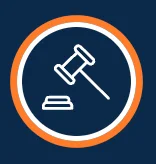To file a nursing home abuse claim, you need evidence that the nursing home is responsible for abuse or neglect. You may rely on a combination of operating records, witness testimony, medical reports, experts, and records of communication. The evidence needed for a nursing home abuse claim depends on the specifics of the case.
Jordan Law Center’s Greenville nursing home abuse lawyer explains the evidence you need for filing a nursing home abuse claim.
Understanding the Evidence for Nursing Home Abuse and Neglect
You must prove that the nursing home is responsible for a wrongful act or omission. Usually, this is done by proving negligence – that the nursing home failed to do what was reasonable to provide care.
There are two steps to proving negligence. First, you must prove the standard of care, or what the reasonable standard of care would have been in the circumstances. Second, you must prove what happened, showing that the nursing home failed to live up to the standard of care.
Recognizing the Signs of Nursing Home Abuse and Neglect
Recognizing the signs of nursing home abuse and neglect can help you build available evidence. A nursing home resident may not realize that abuse or neglect has occurred. They may know that there is a problem, but they may not know that it is from nursing home wrongdoing. If they realize the problem, they may not be able to articulate it.
Look for unexplained injuries or sudden changes. Be wary of a person seeking unusual access to a resident or their finances. An overall lack of sanitation or disrepair may be a warning sign.
Emotional changes like anxiety or frustration may be a sign of nursing home abuse or neglect.
Types of Evidence That Support a Nursing Home Abuse Claim
Evidence to support a nursing home abuse claim may include:
Witness testimony
Witnesses may testify to their actions and observations. Witnesses are often employees, even if they are reluctant or uncooperative. Residents, visitors, medical personnel, and service providers may witness things that are relevant to a case. An attorney can assist you with gathering statements and taking depositions to record witness testimony.
Facility records
Nursing home records may explain what care was provided and if unusual things happened.
Records may document staff on duty, training, and how workers were evaluated and disciplined.
Records may show maintenance and inspections of the facility.
Photographs, video
Photographs can document how the facility looked at items present in a certain area. They can document injuries. Video may show movement within the facility. A nursing home abuse attorney can work quickly to preserve surveillance evidence.
Nursing home policies
Nursing home policies can reveal what was expected of the nursing home and normal practices.
Communication
Emails, call logs, and other communications may prove what happened. Communications may be internal among staff members, or they may involve the resident or family. Communications may create a timeline, and they may contain admissions of abuse and neglect.
Inspection, testing
The facility may be inspected to document the case. Tangible items can be inspected or tested.
Medical records
Medical records may show that abuse occurred. Follow-up medical care may document healing and the extent of suffering.
Expert testimony
Experts may testify to medical issues. Qualified experts may explain the standard of care.
Tangible items
Bedding, furniture, medical supplies, walkers, wheelchairs, and other tangible items may be evidence in a nursing home case.
Incident reports
An incident report may create a timeline of events. Admissions may be admissible in court or used to impeach a witness. Multiple incident reports can create a pattern that caregivers were aware of a danger and failed to act.
Documenting the Abuse: What to Gather and How
You can begin documenting abuse as soon as you are aware of it. Start a diary of dates, what you observe, and who was involved. Take photographs of injuries and a panning video of the area of the facility, if you can. Gather witness statements of family, residents, staff, and others with information. With the help of an attorney, there are formal steps that you can take to preserve photograph and video evidence.
Reporting Abuse
There are steps you can take to report nursing home abuse, including to facility administrators and public officials.
How A Greenville Nursing Home Abuse Lawyer Can Help
A Greenville nursing home abuse lawyer can help you gather the evidence that you need to prove nursing home abuse and neglect. They can manage the case while you focus on your recovery.
Contact
If you or a loved one has experienced nursing home abuse and neglect, you need evidence to prove your case. Jordan Law Center can help. We represent nursing home abuse and neglect victims. Contact us now to talk to a lawyer and start your case.







“There is not enough GREAT THINGS I could say about Jordan Law Center.”